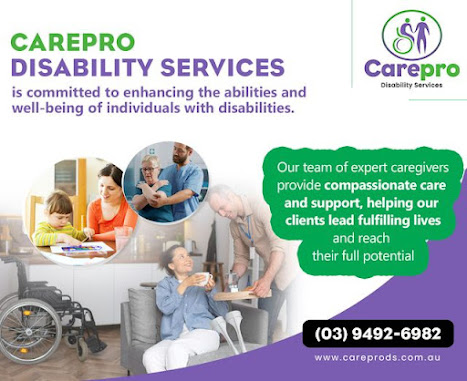In today's rapidly evolving world, the landscape of disability support has undergone a significant transformation. The introduction of the National Disability Insurance Scheme (NDIS) in Australia has paved the way for a groundbreaking approach to empowering individuals with disabilities. At the heart of this innovative system lies the concept of NDIS supported independent living, offering individuals a life-changing opportunity to achieve greater autonomy, dignity, and control over their lives.
Understanding NDIS Supported Independent Living
NDIS supported independent living (SIL) is a key component of the NDIS framework, aimed at providing people with disabilities the chance to lead more independent lives. This involves a range of personalized supports and accommodations that allow individuals to live in their own homes or in a shared living arrangement, rather than in a traditional group home or residential facility. The goal is to enhance an individual's ability to make choices, exercise control, and actively participate in their communities.
Breaking Away from Conventional Norms
For years, individuals with disabilities often found themselves limited to residing in specialized care institutions, often far from their families and familiar environments. The NDIS has disrupted this norm by recognizing the importance of choice and autonomy. Independent living accommodation options have become more diverse, enabling individuals to choose living arrangements that align with their preferences, needs, and aspirations.
Carepro Disability Services: Pioneering Independent Living
One standout player in the field of NDIS supported independent living is Carepro Disability Services. As a leading Disability Service Provider approved by NDIS, Carepro has been at the forefront of offering innovative and tailored solutions for individuals seeking independent living options. Their commitment to promoting inclusivity and personalized care has transformed the lives of countless individuals.
The Role of Short Term Accommodation
Short term accommodation is another crucial facet of NDIS supported independent living. It provides a unique opportunity for individuals with disabilities to experience a taste of independent living while receiving necessary support. This can be particularly beneficial for those transitioning from long-term care facilities or those exploring different living arrangements. NDIS Short term accommodations allow individuals to test the waters, build essential skills, and make informed decisions about their preferred living situation.
Unlocking a World of Possibilities
The NDIS is not just a financial support system; it's a catalyst for change that empowers individuals to take charge of their lives. The flexibility of the NDIS funding model allows recipients to allocate their funds toward services and supports that align with their goals. This might include assistance with personal domestic daily activities, mobility aids, therapies, and more. The power to make these choices enhances an individual's sense of agency and self-worth.
Creating Supportive Communities
NDIS supported independent living goes beyond the physical living space—it's about fostering a sense of belonging and community. Individuals have the opportunity to live with peers who share similar interests and experiences, helping to combat social isolation and promote a higher quality of life. These communities provide a nurturing environment where individuals can build lasting friendships, engage in social activities, and contribute to the community at large.
The Impact on Quality of Life
The transition to NDIS supported independent living has a profound impact on an individual's overall quality of life. It promotes mental and emotional well-being by reducing the feelings of confinement often associated with institutional care. As individuals gain more control over their lives, they experience a renewed sense of purpose and self-esteem. This, in turn, can lead to improved physical health outcomes and increased community participation.
Making Informed Choices
The decision to embark on the journey of NDIS supported independent living is a significant one, and it requires careful consideration. It's important for individuals and their families to thoroughly research their options, seek guidance from experts, and plan for the transition. Consulting with Disability Service Providers, like Carepro, can provide valuable insights into available accommodations, support services, and the application process for NDIS funding.
Embracing a Brighter Future
In conclusion, the NDIS has ushered in a new era of possibilities for individuals with disabilities through its supported independent living approach. With the aid of organizations like Carepro Disability Services and other dedicated Disability Service Providers, people with disabilities are no longer bound by the limitations of traditional care models. The power to choose one's living arrangement, coupled with tailored support, has the potential to transform lives and contribute to a more inclusive and compassionate society.
As we continue to witness the positive impact of the NDIS, it's essential to spread awareness about the opportunities it offers. By embracing NDIS supported independent living, individuals can rewrite their narratives, embracing their uniqueness and pursuing their dreams with newfound confidence. This journey toward independence is not only about physical accommodations—it's about fostering a mindset of empowerment, resilience, and limitless potential.



Comments
Post a Comment